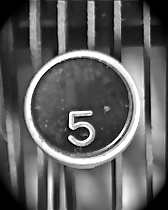5 HOT BOOKS: The Arson That Wasn't, Dating Men When You Hate Men, and More
/1. Fault Lines: A History of the United States Since 1974 by Kevin M. Kruse and Julian Zelizer (W.W. Norton & Company)
A refreshing, new cast of elected representatives take office this week, evoking associations with the epic mid-term elections four decades ago following the forced resignation of President Richard Nixon. In their energetic, informative history, Princeton University professors Kruse and Zelizer chronicle the post-Watergate era through the lens of growing divisions on immigration, race, the economy and add sexuality and class inequality to the mix. Structured chronologically, this history briskly moves through the Clarence Thomas Supreme Court confirmation process, Iran-Contra, Clinton impeachment, Bush v. Gore, Iraq War and the Affordable Care Act, and tensions that have been ratcheted up and exploited by the internet boom and ultra-partisan media that accompanied it.
2. Burned: A Story of Murder and the Crime That Wasn’t by Edward Humes (Dutton)
Humes, winner of the Pulitzer Prize for his in-depth reporting on the military establishment in Southern California for the Orange County Register, and author of books ranging from the G.I. Bill, juvenile court and teaching evolution in schools to true crime, turns to a case of wrongful conviction. While so many stories of injustice involve exonerations based on DNA, false confessions and identifications by witnesses, inept defense and rushes to judgment, Burned Humes rebukes the so-called ‘science’ of forensic arson that led to the conviction of a Los Angeles mother of three, charged with setting her home on fire. Following the lead of the California Innocence Project, Humes digs into the evolving theories about arson and the complexities of investigating fires, including this one that has led to nearly three decades of imprisonment.
3. How to Date Men When You Hate Men by Blythe Roberson. (Flatiron)
A researcher on the “Late Show with Stephen Colbert,” Roberson’s clever take on flirtation, courtship and affairs of the heart is a parody of dating advice manuals and welcome antidote to the tips in glossy magazines. Roberson zig-zags from Nora Ephron to Walt Whitman and with lists like “Ways to Break Up With Someone You Aren’t Dating” and “‘psychoanalytic literary criticism” in a section titled “Using My Four-Year College English Degree to Close-Read Texts from Men” and throughout her book, sustain a self-deprecating, comic philosophy about what was supposed to be the end of patriarchy. This might be the rare case when a book jacket blub really says it best: “How to Date Men When You Hate Men is an incredibly funny read that was surely not written when Blythe was supposed to be working for me." – Stephen Colbert
4. The Perilous Adventures of the Cowboy King: A Novel of Teddy Roosevelt and His Times by Jerome Charyn (Liveright)
Because his imagination is so deeply rooted in history, Charyn brilliantly ventriloquized 19th century figures in first-person novels such as The Secret Life of Emily Dickinson and I Am Abraham: A Novel of Lincoln and the Civil War. Now he makes an even greater leap with Teddy Roosevelt, crime-fighting police commissioner, environmentalist and Rough Rider. From its smart, dime-store style cover, featuring handsomely-turned out TR on the Badlands holding his leashed pet cougar Josephine, to its finale with the future president’s dream scene in which he imagines himself as an entertainer in Buffalo Bill Cody’s circus, this is a unique, engaging and provocative way to consider our colorful 26th president.
5. Old Newgate Road by Keith Scribner (Knopf)
After three decades, Cole Callahan returns to the historical colonial home of his childhood in northern Connecticut, where his father murdered his mother to discover that his father had been released from prison, now suffers from dementia and is living in the house. With psychological insight and a layer of suspense, Scribner artfully illuminates his hero balancing fiercely ambivalent feelings about his father with his own domestic problems involving his estranged wife and defiant teen-age son in Portland, Oregon. This generational dynamic becomes even more fraught when the adolescent boy is dispatched to Connecticut to work in the tobacco fields once tilled by his father, who is now beginning to reckon with his life










